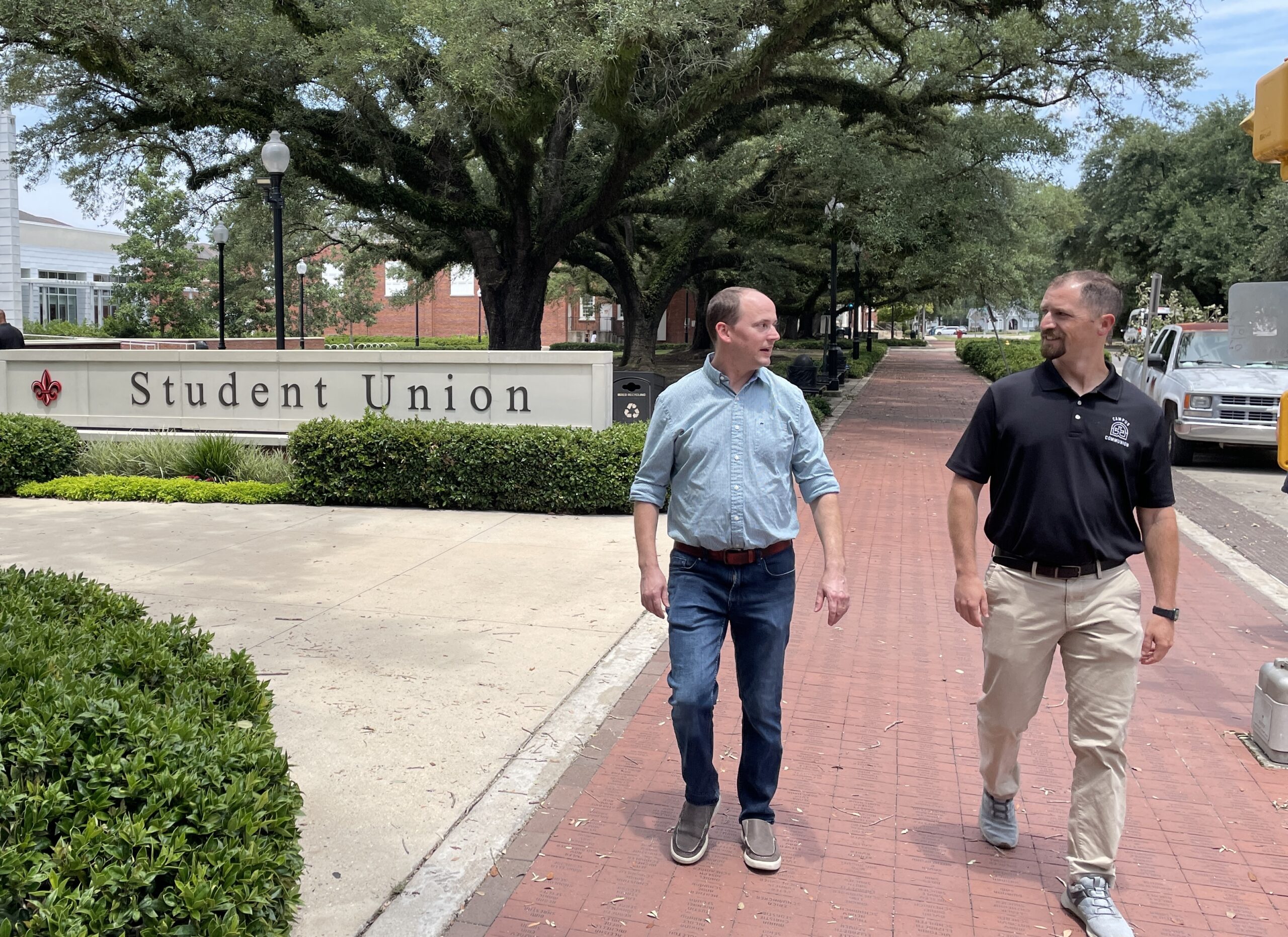New campus ministries launch together at UL
Anglicans and Presbyterians have a history. Both churches emerged from the Reformation. Both took root and flourished in the British Isles. At odds during the English Civil War over royal imposition of the Anglican liturgy, nearly a century later men from both churches helped found America as revolutionary allies. Today two men, an Anglican and a Presbyterian, look to write a new chapter in their shared history by starting two new campus ministries at the University of Louisiana (UL).
Adam Hunter and Alec Moyer will become UL’s newest campus ministers this fall. Hunter is launching the Anglican Campus Communion; Moyer is starting a chapter of the Presbyterian ministry Reformed University Fellowship (RUF). Through friendship and shared core beliefs, both see cooperative opportunities they hope will serve Lafayette’s college community.
Historically colleges produced the kind of impactful ministries both men hope to start. An early example includes Oxford University’s student ministry founded by John and Charles Wesley in 1729. Members of their “Holy Club” participated in daily scripture discussion, fasting twice per week, visiting prisoners, and helping the poor. The “Holy Club” was the derisive name given to the Wesleys’ group by fellow students mocking their methodical piety. The campus ministry name changed to “Methodists” and grew into a worldwide denomination. Also, George Whitefield, once a Holy Club member, preached during the Great Awakening of the 1730’s to lead a revival throughout the American colonies.
Similar, though lesser-known, campus groups in the 1800’s at Cambridge and Scotland’s St. Andrews also launched great missionary works in India, China, and Africa.
Sometime around the 1900’s, colleges changed from sending out missionaries to becoming themselves mission fields. Modern campus ministries arose from denominations, interdenominational cooperatives or parachurch organizations. InterVarsity Christian Fellowship and Campus Crusade for Christ, respectively founded in 1941 and 1951, represented the modern interdenominational model of salaried staff ministering exclusively to a given campus.
The 1960’s cultural shift and the mainline denominations’ slide away from scripture and into heterodoxy on gender roles, human sexuality and marriage caused schisms which produced newer orthodox denominations to which Hunter and Moyer belong. While their churches differ on secondary doctrinal issues, both men and their denominations, the Anglican Church of North America (ACNA) and the Presbyterian Church in America (PCA), find common ground on the inerrancy, infallibility, and authority of scripture along with the historic creeds (Nicene, Chalcedonian).
Today, several established campus ministries already exist at UL. These include Ragin Cajun Catholics, Chi Alpha (Assemblies of God), UL BCM (Baptist) and Cru (formerly Campus Crusade). Yet, given its sizeable undergraduate enrollment of 10,682, Hunter and Moyer believe room still exists to serve UL’s mission field through their respective church traditions.
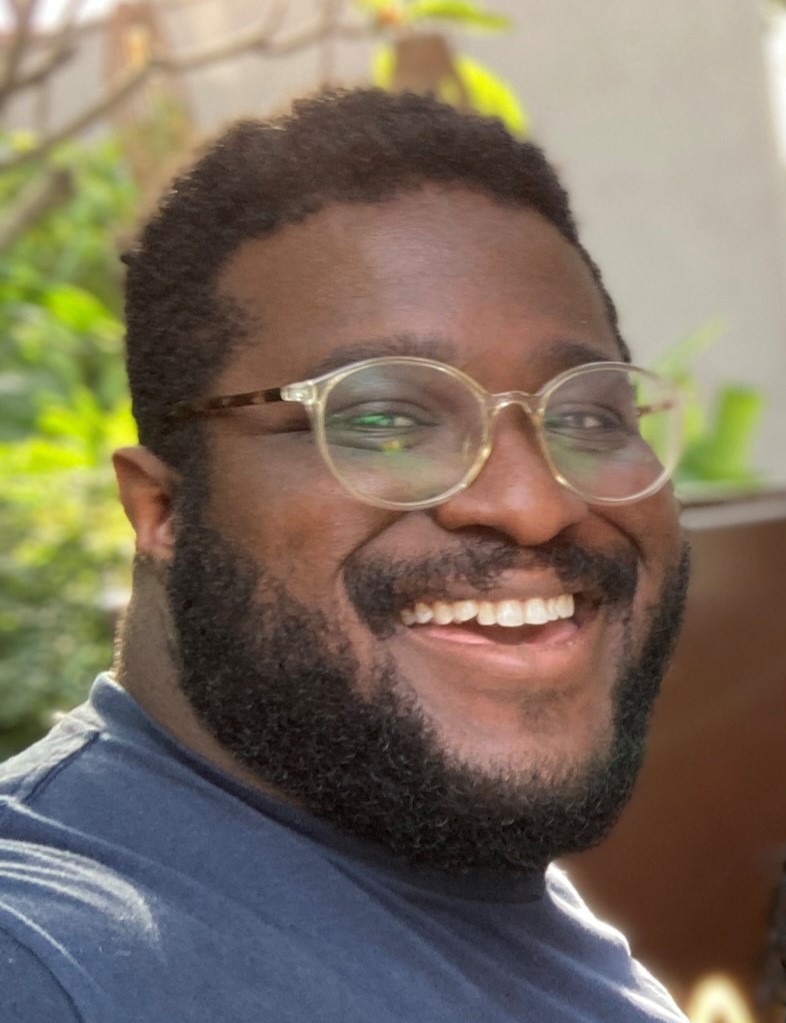
Matthew Hall, originally from Carencro and now a campus minister at the University of Arkansas Pine Bluff, believes both new ministries can succeed. Few have the extensive experience with UL campus ministry as does Hall. As a freshman in 2014, he went through campus ministry “recruitment”, joined one, and then was led to Christ in his dorm room. Hall attributes his salvation to a UL campus minister’s personal investment and relationship with him. He reflects, “It was incredible to be in a ministry where somebody walks with you on a college campus, helping you to understand the Christian faith and live it out.” Over the next few years, Hall became a UL ministry student leader, left UL for seminary, and then returned as a campus mission intern from 2021 to 2023.
Hall has known both Hunter and Moyer for years. He is optimistic for both ministries, “I think they see the campus as the seedbed for God’s work in renewing younger people to pursue the gospel of Jesus Christ in their whole life and to bring health into our churches again.”
Regarding Moyer, Hall opines, “Alec has great administrative ability. Because he has great administrative ability, he’s not going to lose focus of his task. He’s very kind, very focused and he knows what he’s talking about theologically.” As for Hunter, Hall said, “Adam has incredible vision. Adams is very thoughtful theologically and he is completing the seminary work through Trinity where he’s being taught by some of the best people I’ve ever met in my life.”
While challenges exist for any college ministry, Hall identifies one at UL, “We’re Cajun. Our heritage is a blend of cultures. We’re really proud of who we are. Pride can get in the way of something as penetrating as the gospel.” Hall explains such pride can include a “moralistic religiosity” where students assume they have no need for church or personal faith. He sees this as an unintended consequence of the prevailing influence of Roman Catholicism at UL and of the Baptists at Arkansas Pine Bluff. Under such circumstances, students enjoy the benefit of their community’s faith capital without embracing its faith. Hall believes this can make it difficult for any campus ministry to persuade students of their personal need for Christ or His church.
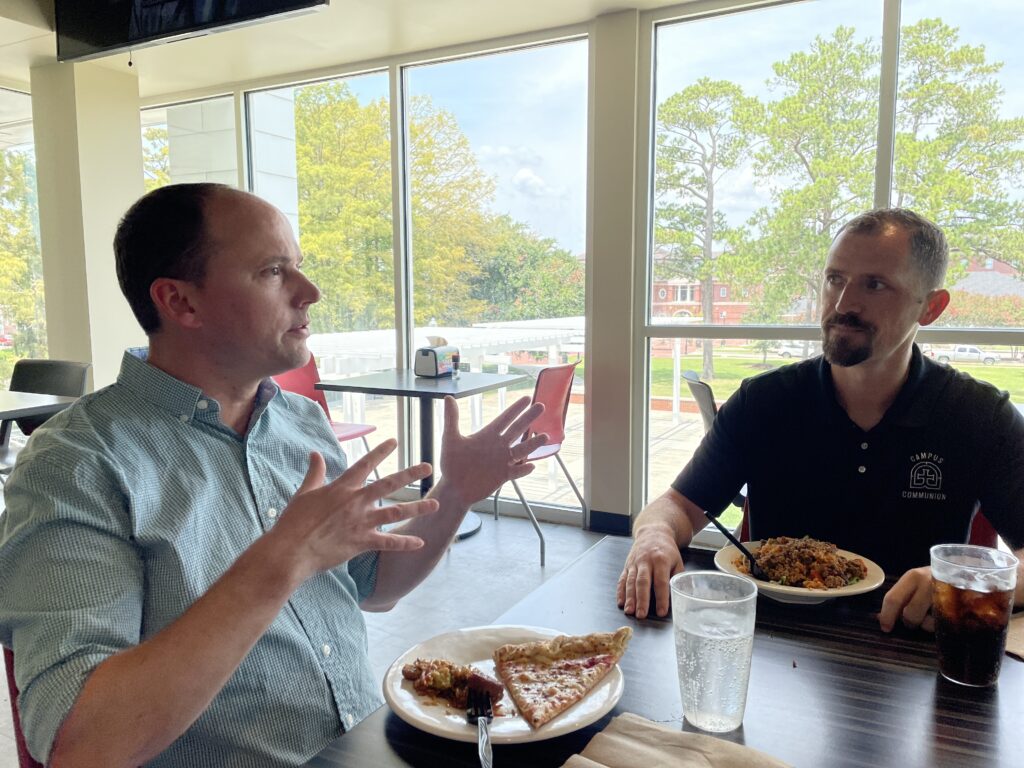
Hunter and Moyer, arriving at UL on different paths, embrace both the challenges and rewards of campus ministry. Hunter, a native South Carolinian, recently worked as a physical therapist for employees at a North Louisiana paper mill. While living in Ruston, a providential connection with Peter Johnston, rector of Trinity Anglican Church (ACNA) in Lafayette, led to talks that affirmed Hunter’s call to ministry. He has since committed to seminary, the pursuit of ordination and to moving his family to Lafayette, which he did earlier this year.
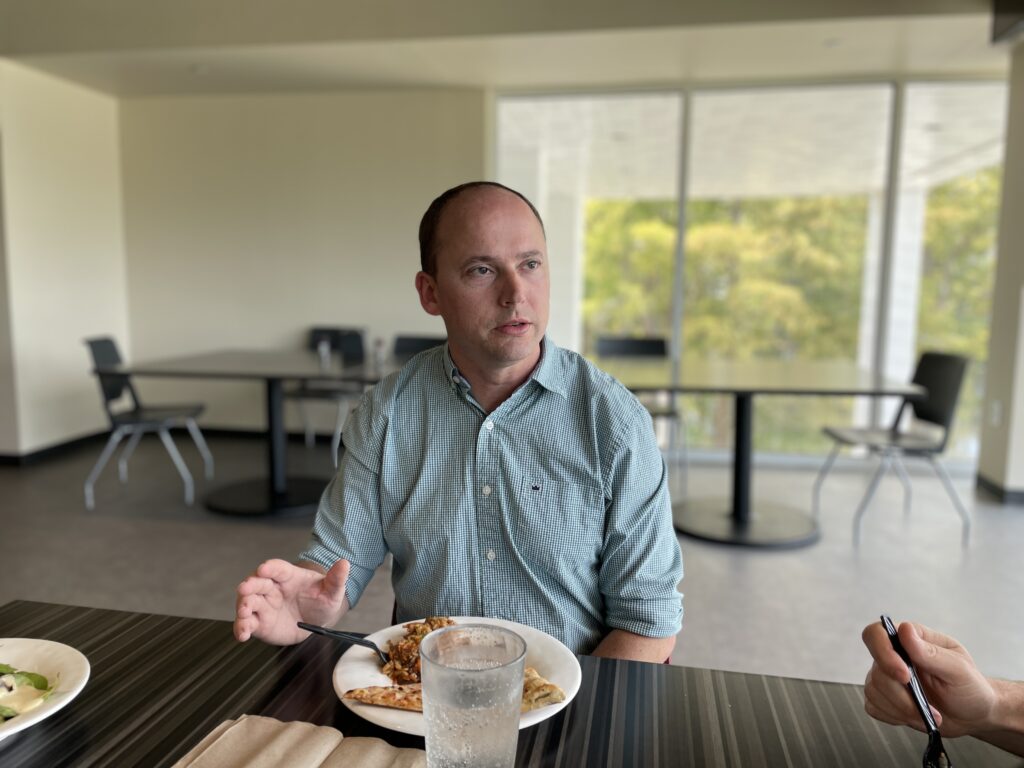
Moyer is homegrown. Raised in Lafayette, he graduated from West Point, left the Army in 2014, then studied at the Reformed Theological Seminary in Charlotte, North Carolina. He, too, spent time in the private sector working in healthcare while also earning an MBA at UL. Through prayer and conversations with Josh Kines, pastor of Lafayette’s Parish Church (PCA), Moyer decided to complete his masters in divinity and to pursue ordination and full-time ministry through RUF.
Both in their thirties, neither man is too far removed from his college days. Hunter sees today’s college students going through similar experiences as he did. “A lot of young people are going through a deconstruction process, asking questions about their faith, asking ‘Why do we believe what we believe?’, ‘Why do we do what we do?’” said Hunter. However, unlike when he was in college, Hunter sees new challenges for today’s campus ministries. “More and more, this generation in college is being called the first truly post Christian generation. Many of them have not really even had full exposure to Christianity.” Hunter is not deterred, “I just see an exciting opportunity. This generation is constantly exposed to a bunch of noise and ever flowing stream of information. I think there’s a deep hunger for something real. The Incarnation and the Christian faith is obviously well suited to meet that desire with the power of the gospel. I’m excited to be a part of that.”
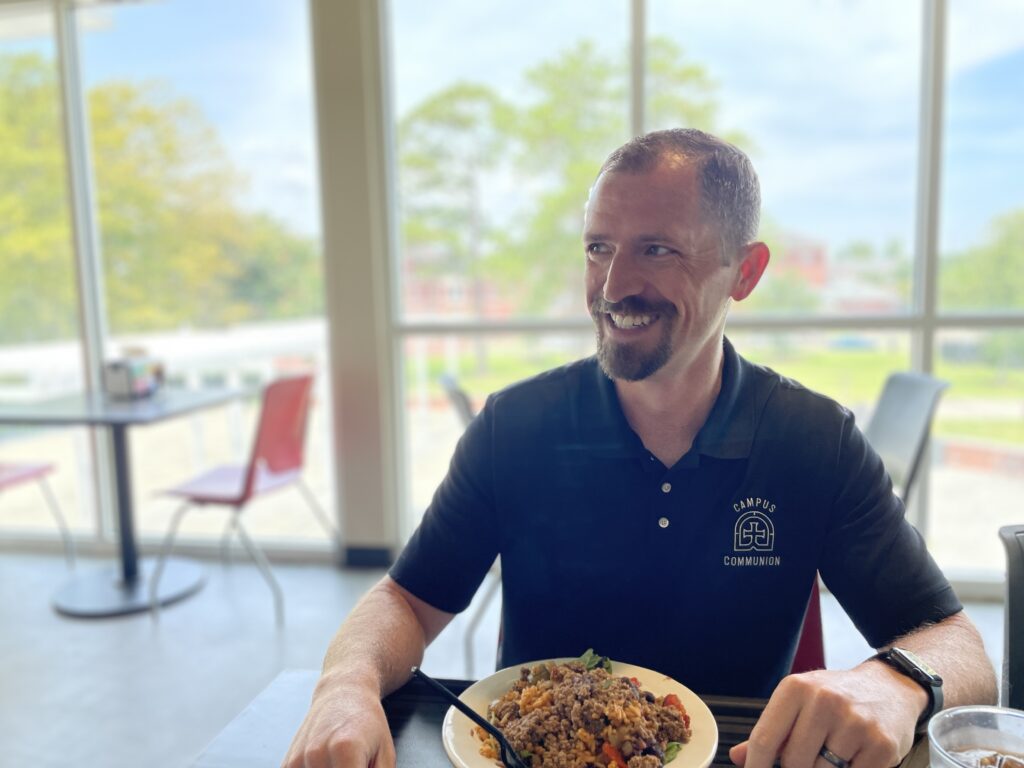
Hunter envisions Campus Communion offering students a “holistic discipleship” to help them bring Christ into their studies and vocations. Hunter hopes students will gather in the Anglican tradition for daily prayer as part of this discipleship, “I would love to get to the point where students can step off of campus, away from the chaos and noise of their day, putting their phones down and come into the presence of the Lord.” While currently searching for a facility near campus to host daily prayer, he emphasizes this would not be a church replacement, “We want Campus Communion to be intimately connected with Trinity Anglican. We hope students will attend Trinity on Sunday and also want people from the church to come to campus.”
Over this sweltering summer, Hunter settled his family into their home located about a mile from campus and traveled frequently for fundraising. When classes start, Hunter said, “We are going to get on campus and start meeting students with the hope of finding a handful of students as Jesus calls them. Then, just invite them into our house, into our lives and just pour into that handful of students to be a foundation upon which to build from there.” If successful, Hunter and Johnston envision Campus Communion becoming a potential template for campus ministries currently lacking in the ACNA.
Moyer’s UL ministry will be one of over 150 RUF chapters nationwide, including LSU and Tulane. His plans include being present on campus as much as possible. By using university spaces, he sees evangelical opportunities, “One of our major reasons for being on campus is to reach those who do not already know Jesus of all types and stripes. So, we absolutely want people who disagree with us to be a part of our community and to come to understand what it means to follow Jesus.”
Moyer also views creating fellowship opportunities as “critical” to RUF’s ministry. “We will seek to welcome students through fellowship events where students can become a part of community and learn to know others and to be known by others,” he said. Moyer sees fellowship as being integral to personhood, “As we spend more time looking at screens, we need to know and to see each other in person. In fact, I’m convinced that we’re not functioning properly as human beings unless we are deeply connected to other people.”
To help students connect, Moyer’s campus model centers around group bible studies, “We’ll have a weekly large group meeting on campus, where we will sing, and we’ll hear a message from the Bible. We also hope to have multiple small group Bible studies that meet at different times and different places around campus.” Once RUF is established, Moyer sees the small groups becoming led by student leaders. “One of the aspects of the Reformed tradition is that we believe the word of God should be preached broadly in large settings where a lot of people hear it. But then it should be applied specifically within the context of relationships and being known one on one.”
Moyer recognizes that the distinctives of the Reformed tradition may be unfamiliar to many in Lafayette. He explains one basic tenet of Reformed theology, “We believe in a ‘Big God’. He is sovereign over the creation of the earth and everything that happens on it. This includes salvation. Scripture is the story of God, through the work of Jesus, not only taking the initiative but also saving us from our profound sinfulness by the Holy Spirit.”
Moyer’s passion behind planting an RUF chapter, like Hunter, also lies with the students and his own experience as a younger man, “The real issue is that students, I believe, as they enter into their young adulthood, begin to question and begin to make practical decisions that set their lives on a certain trajectory. I think they’re asking, ‘Who am I and what am I here to do?’ Jesus provides the answer to those questions. Just after college, I began to ask those questions in the midst of a personal crisis. I found those answers in Scripture and in Jesus. I would like to be a part of students learning what I learned so that they can benefit from the wisdom of Jesus earlier in their lives.”
Both men see their wives playing key roles. Hunter and his wife recognize that many of today’s students come from divorced marriages or dysfunctional families. “Holly wants to be involved. She really loves pouring into young women. I spoke with a campus minister at UL a couple of days ago. He emphasized the need of getting your wife involved because the young women on this campus have a hunger to have a mother. They want somebody they can look to and learn just the practical things in life. How much more the spiritual things?” asked Hunter.
Moyer’s wife Rosalie also plans to be active. “Rosalie was deeply, deeply impacted by RUF at LSU in her college days,” Moyer said. They envision Rosalie’s role to include meeting young ladies on campus and leading a ladies’ bible study. Both men recognize that some of today’s students will look to them for parental guidance that may otherwise be lacking in their lives. If this happens, each couple accepts this as part of today’s college ministry and a faithful marriage witness.
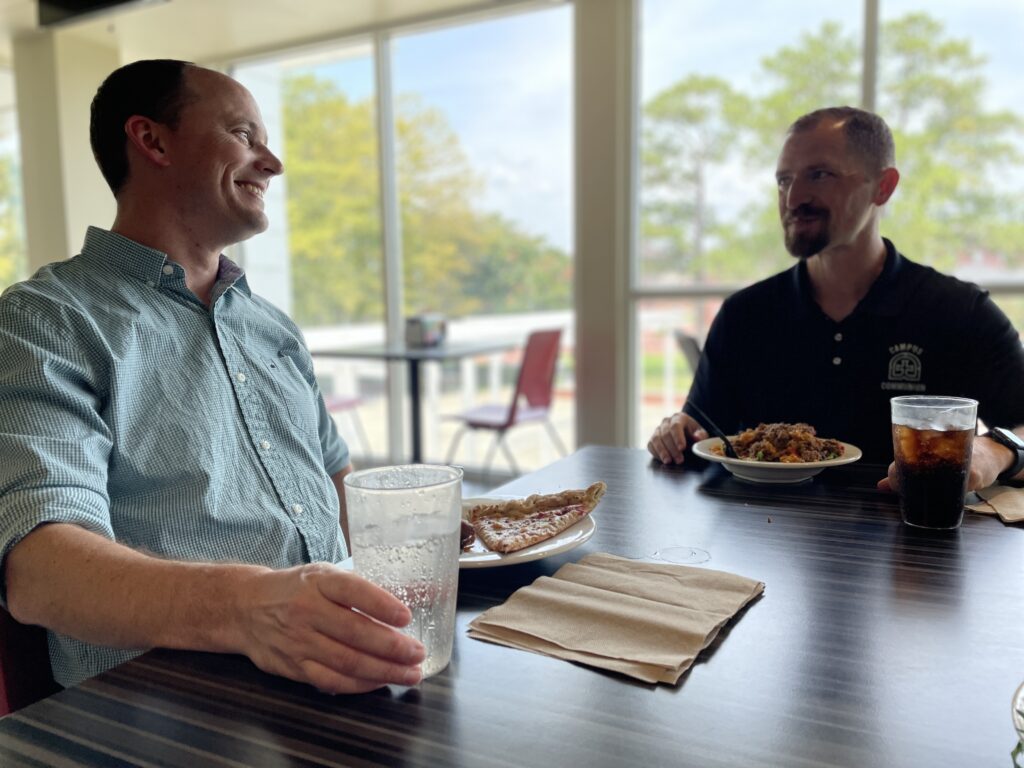
Hunter’s and Moyer’s focus will be helping those students to grow in and to not abandon the faith. Both diagnose a low understanding of Christianity behind many students turning away from the faith. “I think there’s a deep lack of instruction in the faith and connecting the church to its history, the deep roots of the of the Christian tradition,” says Hunter. “When you combine shallow roots of your average evangelical American Christian with the scorching sun of a secular university and all kinds of different philosophies, those shallow roots wither fairly quickly. I see part of my job to become a shade from that sun and to help them grow.”
Moyer adds, “Every child who grows up in a Christian family must at some point make their faith their own. The incoming college student has to decide to engage Jesus. They have to understand the deep nature of their sin and how it affects every part of their personhood, their heart, mind, and soul. They have to understand the solution that Jesus brings with His restoration of our relationship with God. If that personal engagement with Christ does not happen, then a college student will very likely move away from the faith.”
Both men have shared ideas and resources with one another in launching their respective campus ministries. Both also are largely responsible for raising the donations to operate their ministries. Rather than see one another as competitors, when one hears of an opportunity, he lets the other know about it. “There’s already been good camaraderie working together and planning. He has four kids. We have four kids. We’re going hang out, get to know each other and become friends,” said Hunter. Already, both families have shared meals twice together this summer.
Moyer also sees the possibility of RUF members joining Campus Communion for morning and evening prayer time. Both envision joint activities, speaking events, meals and sports (ie. volleyball, kickball or ultimate frisbee) as a means to build relationships between their groups and with the larger campus Christian community. Evidence of their growing mutual trust also includes plans to substitute for one another should the need arise.
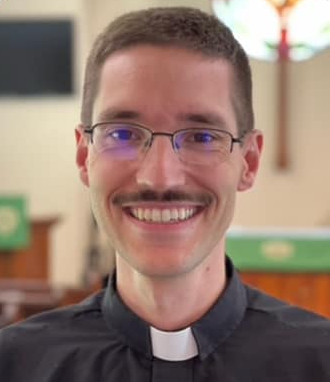
Johnston, Hunter’s pastor at Trinity Anglican, sees potential cooperation between the two campus ministries from a unique perspective. Founded in 2016, Johnston’s Anglican church initially shared a facility with a then existing Presbyterian church. Both churches shared missions and outreach for a season which eventually facilitated their merger in 2018. With this experience, Johnston explains why, despite secondary doctrinal differences, cooperation with Moyer and RUF is desirable, “It’s possible for our traditions to collaborate because we have a shared allegiance to the authority of the scriptures and a shared appreciation for the unity of the church universal.”
While cooperation has been beneficial at the outset, Hunter and Moyer also recognize that the temptation to see the other as a rival can arise as with many ministries. Both know that jealousies and division arose even in the early church between those taught by Apollos, Paul and Peter. (1 Cor. 1:11-13, 3:3-9) One easily identified source of tension could be students leaving one campus ministry for the other. Both men understand that campus ministries can be “revolving doors” with students having a high degree of freedom to move around and explore groups. Both have agreed to confer to determine the best way to help a student who changes group.
Hunter, however, believes their personal relationship will be key in avoiding sectarian division. Hunter said, “I think constant communication and fellowship with each other will kind of ward off the temptation to see each other as rivals and rather see each other as co-laborers of the harvest.” Moyer also advocates for perspective. “Neither of us are going to be above the temptation to not measure our self-worth, or our effectiveness, by the number of students we have listening to us,” Moyer said, “So, being aware of the reality of sinful desires of our own hearts, like James talks about, that’s the first step.” Ultimately, both men understand that service to the students of UL for Christ outweighs their personal interests and individual ministries.
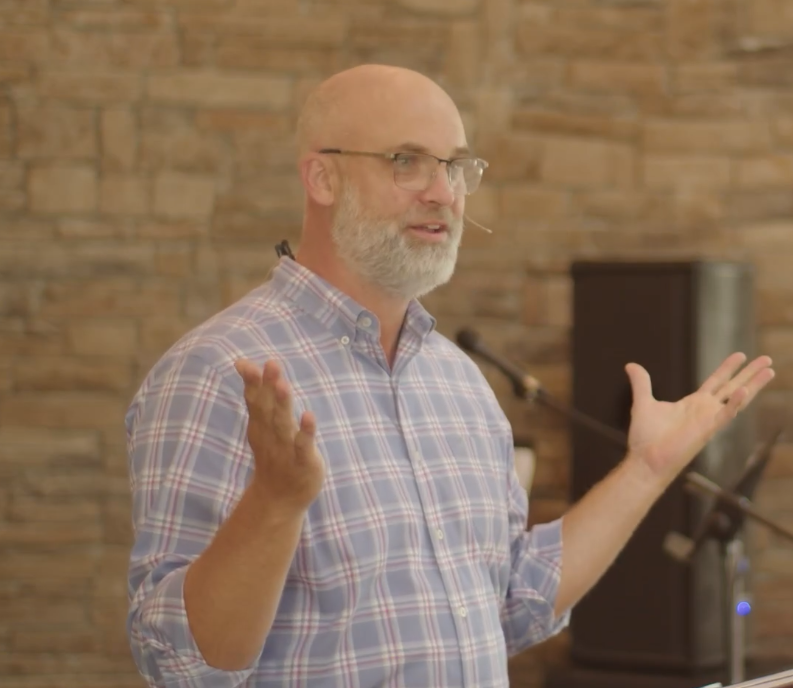
Local ecumenical projects, like the new UL ministries, may have significance in a larger context. Where the first Christendom included sectarian bugs such as the aforementioned English Civil War’s Anglican-Presbyterian divide, one local pastor sees a pressing need for Acadiana churches to unite and prevent lower tier differences from dividing. “There are differences between the churches of Acadiana. In fact, these differences can bring out a beautiful diversity that better images God the Father, God the Son, and God the Holy Spirit,” said Brandon Nealy, pastor of Christ Church of Acadiana. “These differences can also become opportunities for the devil to use his favorite weapon- the wedge,” said Nealy, “While compromising God’s truth is a sin, sectarianism is also a sin. We cannot be tribalist sectarians.”
It is too early to know if UL’s two new ministries will produce the fruit of Oxford’s Holy Club or even that which Matthew Hall experienced as a student. Hunter and Moyer, however, can already claim the blessing of unity through their friendship and shared biblical convictions. If a Christendom 2.0 arises from a crumbling secular West, Christ-centered personal relationships like Hunter’s and Moyer’s will be foundational.
Nealy sees a grim future if unity does not occur, “If there is not revival in the United States, in Louisiana, or in Acadiana, I believe persecution will continue to rise. Unless the church in Acadiana is unified, we will not experience any victory.” Nealy continues, “We will offer no resistance whatsoever to the spirit of the age. In other words, if we are weakened on one side by theological compromise and sectarianism on the other, we will be sheep without a shepherd, scattered, and easily picked off by the wolves of this world.”
Experience shows that local ecumenical unity lasts only as long as the current crisis (ie. hurricane relief) or the latest social-political issue (ie. library controversy). For the unity of which Nealy speaks to form, both laity and church leaders need to move beyond fire brigade mode toward the reality of enduring relationships. To do so means setting aside grudges, jealousies, divisiveness and unhealthy competition. To do so also means growing trusting and loving relationships with Christians of other traditions. This will take an investment by each pastor and every parishioner, one relationship at a time. Is the unifying lust for power of Christ’s enemies greater than the unifying love for Christ of His church in Acadiana? This is the question for Acadiana and of our age. For now, Hunter’s and Moyer’s walk together offers a hopeful first step for UL and Acadiana.
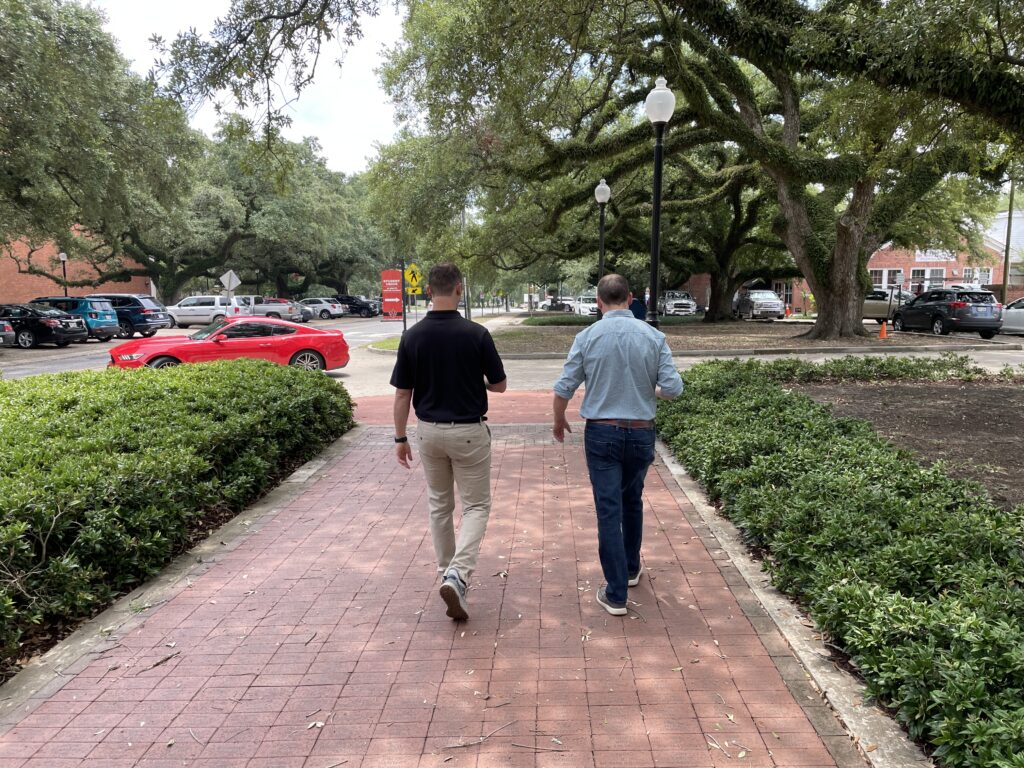
Support for RUF can be given here at https://www.givetoruf.org/donate?fid=2AP%2fwNDn2ZU%3d&fdesc=ldtprM4%2bJWsDx9moFhTiCGruw3K%2fLYVt2tskO15Lj11zmKLGTBqRjcE1WyLI5Fgt0Ynl140ST1eQDlPAxLcJbhJwIa5OVkd3
Support for Campus Communion can be given at drop down “Adam Hunter-Campus Communion” at https://dwgc.churchcenter.com/giving

